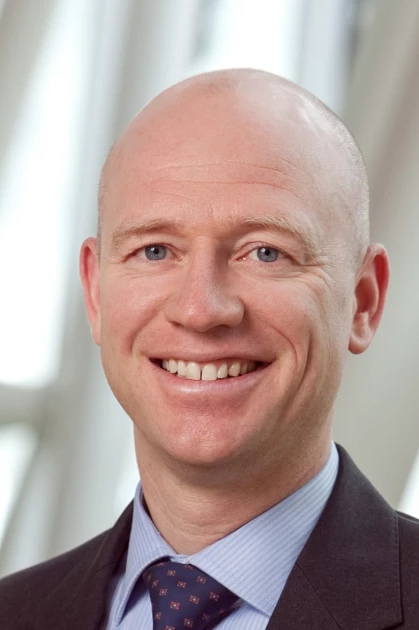sponsored content
Boost Africa Initiative is availing alternative financing to Kenyan entrepreneurs to shine #AD

Edward Claessen, Head of EIB Global's Regional Representation East Africa

Audio By Vocalize
Only when this fails is when they consider banks and cooperative societies, although a great hindrance to this is inadequate collateral to act as security for the loans, the perception that small businesses are a risk for lenders, among many other factors.
At this point, corporate investors become an important source of funding in the form of equity in the business, as they can invest in any form of business, regardless of size.
The decision to invest is based on their depending on their assessment of the projected success of the business, and no financial security is required.
Venture capital is an alternative form of financing that is really good for start-ups or very high-growth enterprises that are looking for funding that does not require immediate repayment.
While the use of venture capital is commonplace in developed countries, it’s not really common in Africa due to a combination of factors.
First and foremost, the venture capital landscape is not very developed in Africa, and a lot of the capital is from international investors.
However, these investors don’t really understand Africa and the unique context of investing in the continent.
The perceived risk of investing in Africa greatly hampers capital flows for investment.
This is why Africa attracts less than 2% of global capital flows. This starves African enterprises of much-needed capital.
The few investors who want to invest in Africa have decried the lack of a robust set of businesses that are investor-ready or bankable.
Most entrepreneurs don’t readily opt to pitch their business ideas to venture capitalists, in part due to a lack of awareness to target and apply to this group.
Additionally, most enterprises have not set up the right organisational structures and operational modalities that would make their businesses attractive for venture capital funding.
It is with these challenges in mind that the European Investment Bank set up the Boost Africa Initiative.
Launched together with the African Development Bank (AfDB), and supported by the European Commission, the initiative looks to help bridge the existing financial gap in venture funding in Africa, while at the same time offering young entrepreneurs in Kenya and Africa technical and capacity building support to launch and grow innovative business ideas sustainably.
“At a higher level, Boost Africa is supporting incubators, accelerators, early-stage and growth stage fund managers who then, in turn, invest in companies from the inception stage to the growth stage, to more mature companies,” says Edward Claessen, Head of EIB Global's Regional Representation East Africa.
Claessen notes that for the venture capital industry to play a more substantial role in supporting young businesses and the private sector at large, huge amounts of funding are required – a need that the public sector cannot fulfil alone.
“We have had to find a way to attract private sector money into these venture capital funds since the amount of capital needed is extensive. At Boost Africa, we have a unique approach to mobilising capital. We invest in funds by structuring a junior tranche, which means that we, as the European Investment Bank, commit to taking on some losses, if there are losses, therefore shielding the other private sectors who have put their money in the venture funds,” notes Claessen.
“Should there be more profits, then we take less of the profits, and give more to these other private investors."
There is an argument that the perceived risk of investing in Africa is far greater than the actual risk, making many investors who don’t understand Africa not even think of investing on the continent. In a way, the Boost Africa Initiative has changed the risk-reward model of investing in Africa’s EIB-backed venture capital funds, making it very successful.
EIB’s investment of EUR 78 million in Boost Africa has encouraged other private investors to bring in nearly EUR 400 million for investing in African companies.
So far, Boost Africa has supported 73 companies, and the number is projected to reach circa 120 companies by the end of the investment window, thus creating thousands of jobs.
The Boost Africa Initiative supports innovation in sectors like logistics, health, education, agribusiness, energy, financial services and inclusion, digital, and the creative industry, like music and art, all within the common pot of African innovation.
In 2024, Kenya ranked as the top destination in Africa for venture capital funding driven by technological advances, a strong entrepreneurial ecosystem and favourable frameworks for investment.
In Kenya, Boost Africa Initiative has helped fund many companies, including Poa Internet, an internet service provider that launched in Kibera, Nairobi, in 2016.
Poa focuses on connecting the underserved towns of Kenya with wireless internet, improving lives through unlimited access to knowledge and opportunities.
“As Poa, we have been working under the Boost Africa Initiative through a private Equity Fund called Seedstars Ventures. The capital they provided has been used to finance additional infrastructure, equipment, hire additional people from the communities, and to train those people in all the skills necessary to operate the equipment or sell the internet services,” notes Poa Internet CEO Andy Halsall.
Boost Africa Initiative has a strong focus on youth and women-led businesses.
Other companies supported in Kenya include Shamba Pride, Turaco Digital Insurance, XENO Investments and many other innovations.
“Boost Africa enables entrepreneurs to start and grow businesses, which then leads to the creation of sustainable jobs, that in turn support economic development, reduce poverty and reduce unemployment. This is very much aligned with the EU’s Global Gateway strategy that seeks to support the private sector in sustainable economic development and creation of sustainable jobs,” says Claessen.
(Embed the You Tube link to Shamba Pride)


Leave a Comment